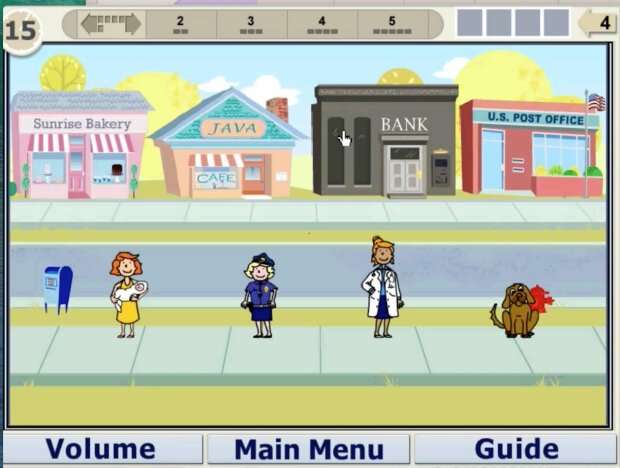
Car accidents, falls, and sports-related collisions are among the many causes of traumatic brain injuries (TBI)—sudden impact that damages the brain. Such injuries can affect cognitive functioning including information processing, working memory, and attention span. This reduced brain activity adversely affects the quality of life for people with TBI who can face challenges in workplace and social settings.
NYU researchers are analyzing the potential to improve cognitive functioning for people with TBI by way of a very familiar medium: computer apps.
This academic year, NYU Steinhardt Professor Gerald Voelbel published studies showing the rehabilitative potential of the Brain Fitness Program—a computer program designed to prompt positive changes in the brain through exercises involving reconstruction of verbal sequences, syllable pairing, and identification of story details presented verbally.
Voelbel and his co-authors concluded that TBI patients who used the Brain Fitness Program showed improvements on tests assessing verbal attention, working memory, and information processing, years after their injuries occurred.
NYU News spoke with Voelbel about the nature of TBIs, how these apps can improve cognitive functioning, and the future of clinical treatment.
What are the most common mental and physical effects of traumatic brain injuries? How have TBIs affected the lives of your study participants?
The effects of a traumatic brain injury depend on the severity of the impact to the head. For example, a concussion is considered a mild traumatic brain injury, whereas someone that has a coma following a head injury is a severe traumatic brain injury. In both examples, the brain’s normal functions are disrupted. These are categorized in five domains: cognitive, physical/sensory, behavior, emotional control, and sleep. In someone that has a severe brain injury, the cognitive deficits experienced can be memory, planning and problem solving, working memory, attention, and processing speed impairment. The physical and sensory deficits can be headaches, fatigue, pain, weakness or paralysis, loss of sensation, or sensitivity to light and sounds. The emotional control deficits can cause someone to be easily agitated and impulsive, as well as experience depression and anxiety. The sleep disturbance can be insomnia, not getting restful sleep, and chronic feelings of fatigue. For people with severe brain injuries, these symptoms can be profound and last their entire lives. This affects their quality of life and their ability to participate in everyday activity, as well as being gainfully employed.
How does the Brain Fitness Program improve cognitive functioning?
My research has shown that by targeting the auditory processing cognitive functions with the Brain Fitness Program, adults with chronic traumatic brain injury—on average eight years post-injury—can benefit from computerized cognitive remediation. Compared to a group who did not get the cognitive exercises, the group that did demonstrated improvement in their verbal attention and working memory. Furthermore, they reported feeling an improvement in their cognitive ability, signifying an improvement in their quality of life. After further investigation, we saw a change in the brain circuitry in the group who did the cognitive exercises compared to the other group. The brain changes were also associated with the cognitive improvements. Therefore, we concluded that the cognitive exercises of the Brain Fitness Program that targeted the auditory processing system changed the brain’s circuitry, which led to greater cognitive abilities.
What are the implications of your research for clinical treatment in the future?
Source: Read Full Article
